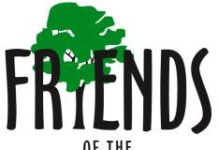When it comes to news, ignorance is not bliss. Our world has been changed out of all recognition in the past decades, with a phenomenal growth in access to news and information of all kinds. Traditional news outlets, such as newspapers, radio and television, have faced increasing competition from new technology, and online platforms such as Facebook, Google, Instagram, Twitter (now X), Tic Tok, and others. On the face of it, this has been a positive thing, a wider array of opinion, and broader scope of news coverage, a break in the monopoly of what has come to be known as the Mainstream Media. So far, so good.
But with this revolution in information availability has come a growing threat to reliability. When everyone with a cause, a theory, or a grievance has a platform and an audience, without filters or standards, it becomes very difficult for people to evaluate the truth or accuracy of what is set before them. There need be no source cited, no footnotes, no corroborating evidence for what is written, and that makes it easy for inaccurate, misleading, or just plain false information to be put out alongside fact-based, reliable material.
We’ve all come to recognise this as a fact of modern life. Fake news is a term we are accustomed to hearing. We can see people in public life lie directly to camera, knowing that what they say is a lie, knowing that we know it’s a lie, and yet lying anyway, because they know their “tribe” will lap it up and pass it on. Worse, they will, sooner or later, act on it.
News matters. It determines policy, changes attitudes, informs opinions, changes how we see the world and how we act in it. That is why September 28 has been declared World News Day. So, as the Times lands in your mailbox this week, we acknowledge this global initiative to draw public attention to the role that journalists play in providing trustworthy news and information that serves citizens and democracy.
We know how much national and international news matters, how important it is that we have a clear and accurate understanding of what’s happening around us in a globalised society, where issues such as climate change, human rights, war and peace, all affect us locally. Accurate news allows people around the world to be involved in issues that may not affect them personally: demanding release of prisoners in other countries, protesting human rights abuses in distant places, becoming informed about the impact of climate and societal changes worldwide.
But news matters locally also. As a community, we need to be informed about what’s happening here among us, local politics, local causes, local needs, local opportunities. The recent announcement that Metroland Media Group is ceasing publication of 70 community newspapers shows how tenuous is the life of such papers, even when owned by a major corporation. Here at the Times, we only continue to exist because of the support of other local businesses and supporters, without whom we could not continue for long. Our masthead says “The Voice of North Grenville”, by which we always mean your voice, the voice of a community that can talk to one another, that can stay in touch with each other in a way that is impossible otherwise. Being local, we can be called to task if we print something that is inaccurate or misleading, however unintentional. That is the value of news media: it can be a clear and unambiguous voice in a cacophony of conspiracy theories, deliberately misleading claims and allegations online, and damaging attempts to disrupt, distort, and destroy what we hold dear.
We can disagree on many things, sometimes strongly and deeply. But the important thing is that our opinions be informed opinions, based on facts and accurate information, not lies or baseless allegations. The move by Facebook to close the pages of all news outlets in Canada shows how dangerous it is to be dependent on such platforms for your news and information. On this World News Day, we should remind ourselves that ignorance is not bliss, that civil and human rights and freedoms need protecting, and that we have a responsibility to think, to consider, to support fact-based journalism. In other words, to be citizens.









Great article, very sad to see the demise of the other local paper.
Although I am reading this ‘on line’ (I am in Spokane, Washington, USA) I do love my paper in hand not on the web. Somehow it means more when I read it sat in my kitchen with a coffee.